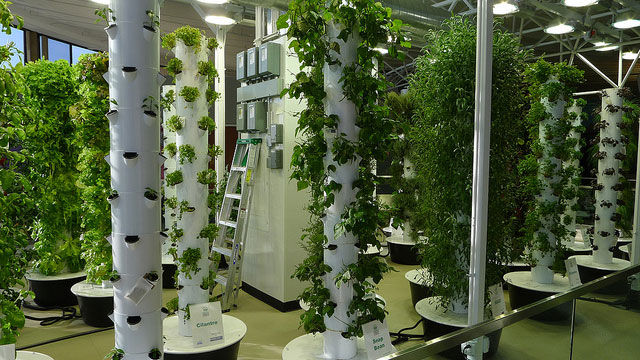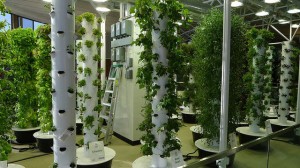I share with you my comments to the conference organizers.
In my initial research on vertical “urban” farms I discovered Dickson Despommier and his concepts which you can read about at www.verticalfarm.com. Despommier has been a frequent speaker at conferences advancing the idea of agricultural intensification and localization in a world increasingly dominated by cities. Despommier is one of a number of visionaries who equates our current agricultural model as increasingly problematic because of its net contribution to global warming and its destructive impact on soil and freshwater resources.
How is this occurring? Because clearing land on a large scale to grow crops has an enormous impact on the planet’s carbon and freshwater balances. And in places like Amazonia and The Congo the demand to plant traditional farms is depleting the rainforest, the planet’s lungs and regulator of atmospheric water vapor. Meanwhile transportation of agricultural produce to urban consumers is a significant contributor to greenhouse gas (GHG) emissions. So there are so many good reasons to seek a new paradigm for farming.
I also looked at the work being done in Manchester, UK, Kyoto, Japan, Singapore and the Netherlands. The posting https://www.21stcentech.com/agriculture-part-2-why-we-are-rethinking-the-farm/ provides links to many of these projects.
Our future with climate change producing increasing risks to the current agricultural production model suggests we need a way to mitigate and overcome what could become a cascade of catastrophic occurrences throughout this century and the next few that follow. A recent report entitled “Stranded Assets in Agriculture” highlights what farmers are facing in the near and more distant future. I invite you to read a posting I wrote back in January on the economic impact to agriculture from climate change at https://www.21stcentech.com/agriculture-update-economic-impact-farmland-climate-change/.
If we are to be an urban society which clearly is in the cards, and if we are to address climate change, the urban farm in a controlled setting represents a model worth pursuing. It may prove to be the easiest way for humanity to climate proof agricultural production and ensure that we produce food with a minimal carbon footprint. Of course, adapting agriculture to this new paradigm where most of what we consume is locally produced will require governments to be proactive in developing carrot and stick policies to promote the shift from the current model.
The end result will be far less horizontal land under agricultural production and a higher concentration of farm production within 100 kilometers of urban markets. It means land currently plowed can revert to a more natural state and the potential to create a landscape that sequesters carbon and preserves the natural water balance in the air and in aquifers.










